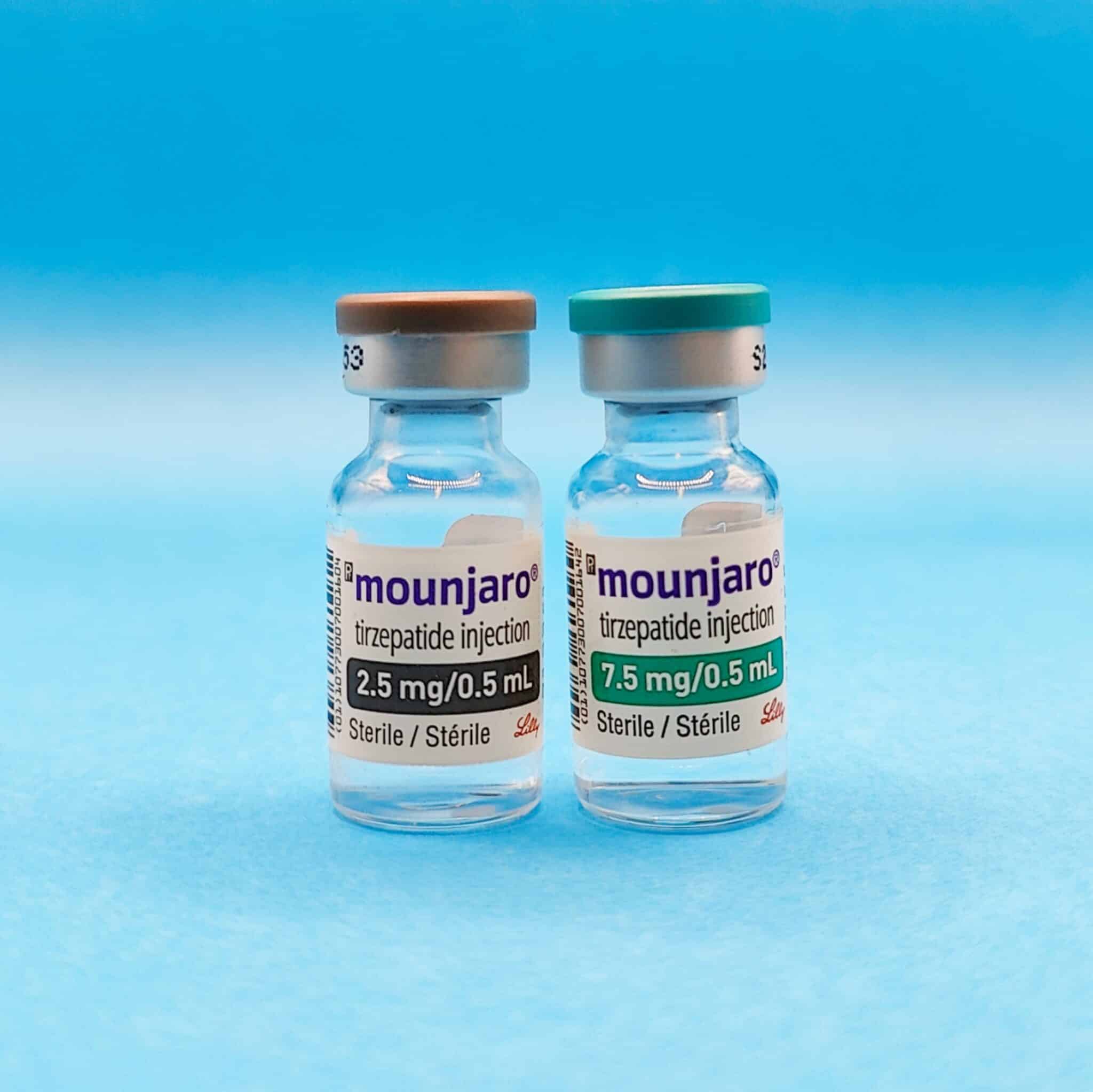Mounjaro (Tirzepatide) and Alcohol: Is It Safe to Drink?
Mounjaro (Tirzepatide) and Alcohol: Is It Safe to Drink?
- Todd P
Mounjaro (tirzepatide) is a groundbreaking medication approved for managing Type 2 diabetes and increasingly recognized for its potential in aiding weight loss. As with any medication, patients often wonder about potential interactions with alcohol. This blog explores the relationship between Mounjaro and alcohol consumption, offering practical advice on what to avoid while using the medication.
Understanding Mounjaro’s Mechanism of Action
Mounjaro works by mimicking the effects of two natural hormones, GLP-1 (glucagon-like peptide-1) and GIP (glucose-dependent insulinotropic polypeptide). These hormones regulate blood sugar levels, reduce appetite, and promote weight loss. By targeting these pathways, Mounjaro effectively lowers A1C levels in patients with Type 2 diabetes and helps them lose weight.
Because of its dual-action mechanism, Mounjaro impacts digestion, glucose regulation, and other metabolic processes. This makes understanding potential interactions, including those with alcohol, especially important.
Is It Safe to Drink Alcohol While on Mounjaro?
Alcohol consumption can pose risks for individuals taking Mounjaro, particularly for those managing diabetes. While occasional or moderate drinking may not pose significant risks for everyone, it’s essential to understand how alcohol affects your body in conjunction with tirzepatide.
Potential Risks of Mixing Alcohol with Mounjaro
1. Blood Sugar Fluctuations
Alcohol can cause unpredictable changes in blood sugar levels. For those managing diabetes with Mounjaro, these fluctuations can be problematic:
- Hypoglycemia (Low Blood Sugar): Drinking alcohol, especially on an empty stomach, can lower blood sugar levels to dangerous levels. Mounjaro already improves insulin sensitivity, which may amplify this effect. Symptoms of hypoglycemia include dizziness, confusion, sweating, and even fainting.
- Hyperglycemia (High Blood Sugar): Certain alcoholic beverages, such as sweet cocktails or beer, contain high sugar levels, which may spike your blood sugar.
2. Increased Side Effects
Mounjaro is known to cause gastrointestinal side effects, such as nausea, vomiting, and diarrhea, especially during the initial stages of treatment. Alcohol can exacerbate these symptoms, making it harder for patients to tolerate the medication.
3. Impact on Weight Loss Goals
Many alcoholic drinks are high in calories, which may counteract the weight loss benefits of Mounjaro. Additionally, alcohol can impair judgment, leading to overeating or consuming unhealthy foods.
Recommendations for Alcohol Consumption
- Moderation is Key: If you choose to drink, do so in moderation. The CDC defines moderate drinking as up to one drink per day for women and up to two drinks per day for men.
- Monitor Blood Sugar Levels: Keep a close eye on your blood sugar before and after drinking. Avoid alcohol on an empty stomach, and pair drinks with foods that have a low glycemic index.
- Consult Your Healthcare Provider: Always discuss alcohol consumption with your doctor or pharmacist, as they can provide personalized guidance based on your health and treatment plan.
Other Things to Avoid While Taking Mounjaro
While alcohol is a common concern, there are several other substances and habits to avoid while on Mounjaro to ensure its effectiveness and minimize side effects.
1. Foods High in Fat and Sugar
- Mounjaro slows down digestion, making it easier for your body to absorb nutrients slowly. Consuming foods high in sugar or fat can lead to discomfort, including bloating, nausea, or indigestion.
- Focus on a balanced diet with plenty of vegetables, lean proteins, and whole grains.
2. Skipping Meals
- Because Mounjaro regulates appetite, some patients may inadvertently skip meals. However, this can cause blood sugar levels to drop dangerously low, particularly when combined with alcohol or other medications like insulin.
3. Dehydration
- Staying hydrated is critical while on Mounjaro, as dehydration can worsen side effects like nausea and dizziness. Alcohol, being a diuretic, can increase the risk of dehydration. Ensure you drink plenty of water daily, especially when consuming alcoholic beverages.
4. Non-Prescription Weight Loss Products
- Avoid using over-the-counter weight loss supplements or products alongside Mounjaro unless approved by your doctor. Combining such products may increase the risk of side effects or interfere with Mounjaro’s effectiveness.
5. Certain Medications
- Some medications, particularly those that affect blood sugar levels (e.g., sulfonylureas, insulin), may interact with Mounjaro. Additionally, medications causing gastrointestinal distress (like NSAIDs) can worsen Mounjaro-related side effects.
- Always inform your healthcare provider about all medications and supplements you are taking.
6. Pregnancy and Contraception Concerns
- If you are pregnant, planning to become pregnant, or breastfeeding, Mounjaro is not recommended. Women of childbearing age should use reliable contraception while on Mounjaro, as its effects on fetal development are not fully understood.
Tips for Managing Mounjaro’s Side Effects
To maximize the benefits of Mounjaro and minimize side effects, consider the following tips:
1. Ease Into the Medication
Many patients start with a lower dose of Mounjaro (e.g., 2.5 mg) to allow their body to adjust before gradually increasing to a higher dose. Follow your healthcare provider’s instructions for titration.
2. Eat Small, Frequent Meals
Consuming small meals throughout the day can help manage nausea and prevent blood sugar dips.
3. Limit Trigger Foods
Spicy, fried, or greasy foods can worsen nausea. Opt for gentler options like crackers, oatmeal, or bananas.
4. Stay Active
Regular physical activity not only improves blood sugar control but also enhances weight loss, complementing Mounjaro’s effects.
Final Thoughts
While drinking alcohol while on Mounjaro isn’t strictly forbidden, it requires caution and moderation. Alcohol can complicate blood sugar management and exacerbate side effects, so it’s crucial to consult your healthcare provider before consuming it. Beyond alcohol, being mindful of your diet, medications, and lifestyle choices will help you get the most out of your Mounjaro treatment.
If you’re considering starting Mounjaro or have questions about its interactions and side effects, reach out to your healthcare provider or pharmacist for personalized advice. Your journey to better health starts with informed decisions!
Reference:


